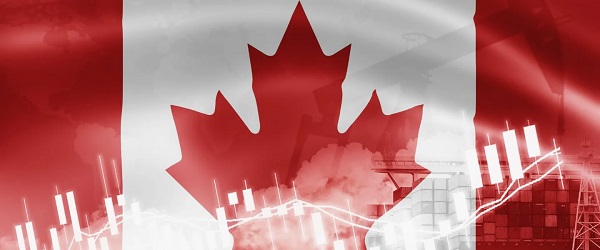International
Keir Starmer’s left-wing UK government is at war abroad and against its own people
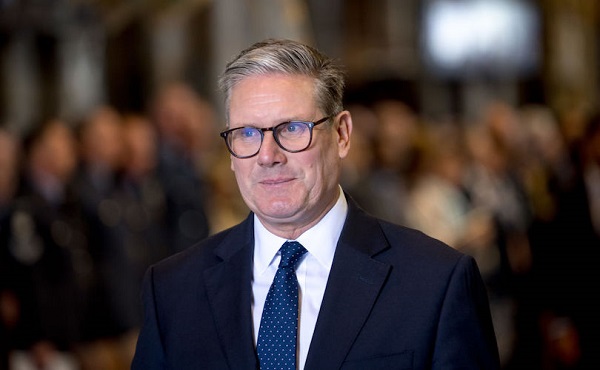
British Prime Minister Keir Starmer
From LifeSiteNews
By Frank Wright
With Britain’s economy facing disaster and its citizens under threat of imprisonment for tweet crimes, Prime Minister Keir Starmer’s government is stoking war abroad and charged with starting one at home – against its own people.
On the Fourth of July 2024 Keir Starmer won the U.K. general election with around one-fifth of the vote. This delivered him a huge majority in Parliament, and he vowed on the day that “politics can be a force for good. And that is how we will govern.”
Four months later, over two-and-a half million Britons have signed a petition to call another election. Though few believe this will result in an election, it is a strong sign of mounting dissatisfaction with the Labour government – and the numbers signing are rising by the thousands every minute.
Almost immediately on taking office the Starmer government plunged in popularity. Despite ending his first week in power with a reasonable approval rating in the polls, his support has suffered an “historic drop” in ratings, according to Politico’s report three weeks ago.
“Keir Starmer has suffered the biggest post-election fall in approval ratings of any British prime minister in the modern era,” the report said. He is “languishing on an approval rating of -38,” which is “a precipitous 49-point drop” from early July.
A disastrous budget and a declaration of “class war” on British farmers has followed this survey, with the latest indication of Starmer’s deep unpopularity seeing millions call for him to go.
One major reason for the call for an election is the Starmer government’s response to the knife murder of three girls aged six, seven and, nine by suspect Axel Rudakubana, initially described as a “boy … from Cardiff” on July 29, 2024.

Court sketch of “Cardiff teen” Axel Rudakubana. Source: X
READ: UK’s new Prime Minister Keir Starmer moves toward digital tyranny in response to civil unrest
Some British social media users who expressed outrage at the killings faced swift prosecution and some still face imprisonment. Starmer was accused by Elon Musk of being “Two-Tier Keir” – applying the law unevenly to imprison critics, whilst freeing actual violent criminals to make space for “keyboard rioters.”
“Is this Britain or the Soviet Union?” – asked Musk as news of the arrests for speech crimes broke.
British judges have handed down harsh sentences – up to 38 months – for “hate speech,” including posts on sites such as X (formerly Twitter).
One man, Yorkshire grandfather Peter Lynch, subsequently died in prison. He was described as “the victim of a vengeful, out-of-touch Prime Minister” in the Daily Telegraph. Starmer had vowed to “crack down on far-right thugs” such as Lynch, who was jailed for shouting that police were “protecting people who are killing our kids and raping them.”
A 2015 report said up to “one million British children” may have been sexually exploited by immigrant gangs. The judge who jailed Lynch had also set a convicted child sex offender free.
The convictions were pursued under an official narrative of countering hate speech, as many of those prosecuted alleged a terrorist motive to the killings, linking this to the fact that the suspect was the child of Rwandan immigrants. These claims were routinely dismissed as dangerous conspiracy theories – and hate speech.
Starmer was formerly a lawyer who has worked in the past to secure rights and benefits for illegal immigrants, and once promoted a 2015 petition to “accept more asylum seekers and increase support” for them.
Evidence emerged at the initial hearing before his trial that the suspected killer had been found in possession of an “Al Qaeda training manual” and was attempting to manufacture the nerve agent ricin. He was charged under the Terrorism Act.
In addition to terrorism charges, and three counts of murder, the BBC reported “he is also charged with ten counts of attempted murder and possession of a knife.” Eight children were wounded, along with two adults, during the attacks.
READ: UK’s draconian ‘online safety’ laws are turning traditional values into criminal ‘hate speech’
As this news broke, reports emerged showing Starmer had known that the suspect would face terror charges “for weeks,” whilst he and his government condemned “misinformation” whenever terrorism was mentioned in connection with the attacks.
As The Sun reported, both former Prime Minister Liz Truss and a former adviser to Boris Johnson, Dominic Cummings, said Starmer would have known this “immediately” after the attacks.
Many judges who have imprisoned British social media users for “tweet crimes” have been found to have released child sex offenders without jail time, fueling further outrage. A report from the Telegraph confirmed the trend of releasing “pedophiles” without custodial sentences.
Musk again commented on one shocking case.
With the investigation of a British journalist, Allison Pearson, over a “non-crime hate incident,” the charge of “Keir Stasi” was reprised, with Elon Musk once again chiming in.
Pearson was visited at home by police over an old tweet, in a case which has since been dropped. Yet Elon Musk’s friction with the Starmer government does not end here – nor with him.
READ: Keir Stasi? UK government wants to prosecute ‘non-crime hate speech’
Breaking the ‘special relationship’?
The Starmer government is also mired in a serious scandal concerning the incoming Trump administration. As the Washington Post reported, Starmer’s Labour Party “helped organize 100 members to volunteer for the Kamala Harris campaign, with a focus on the swing states.”
The Trump campaign responded with a legal complaint with the U.S. Federal Election Commission, charging Starmer’s Labour, together with the Harris campaign, with “making and accepting illegal foreign national contributions.”
Though the scandal was hand-waved away by Starmer, his cabinet ministers have a long history of making outrageous remarks about President Trump. U.K. Foreign Secretary David Lammy, for example, has alleged Trump is a member of the Ku Klux Klan and called Trump a “neo-Nazi sociopath.”
That the Trump campaign has called Starmer’s party “far-left” is not the half of it. The U.K. government has long pressed for escalation in Ukraine – a war which Trump has vowed to end.
With the war’s end would come a harsh reckoning of costs – including to energy bills, in human lives, and of course in the once notorious corruption of Ukraine itself. The Pandora Papers revealed the “hidden fortunes of the world’s elite and crooks” and the report, issued in November 2021, even detailed the shady financial dealings of Zelensky himself.
With isolation looming in Europe, Starmer is looking very lonely. His chief continental ally, German Chancellor Olaf Scholz, has just seen his government dissolve. Right-wing populism is growing across Europe, with France, Sweden, Austria, and the Netherlands looking to politicians far friendlier to Hungary’s Viktor Orbán than to pro-open borders and permanent war progressives like Starmer.
British intelligence operations under Starmer have also included attempts to “kill Musk’s Twitter,” with Kit Klarenberg reporting on November 3 how “British Intel Again Targets Donald Trump.”
Starmer’s troubles at home and abroad are serious and seemingly insoluble. His Chancellor of the Exchequer, Rachel Reeves, has recently been exposed as a liar. She had claimed to have been an economist, when in fact she had been a sort of clerk – and had also been described as “useless.”
With Britain’s economy facing disaster, its citizens under threat of imprisonment for tweet crimes, and with the Labour Party seeing farmer protests in London against its tax and land grab, Starmer’s government is stoking war abroad and charged with starting one at home – against its own people.
His government is an advertisement for a world order which Americans – and Europeans – are voting against in huge numbers. So, what happened in the U.K. in July?
The real winner of the last election in the U.K. wasn’t the Labour Party. Half of all adults did not vote at all, and turnout was the lowest since universal suffrage was introduced, as the IPPR reported.
“If non-voters were a party, they would have been the largest party by some distance,” it found.
Britain does not just face a crisis of confidence in its current government when the largest vote share is won by “none of the above.” It is hard to see how a petition can fix this, but given the level of disengagement with the electoral machine, it is notable that two-and-a-half million people can be bothered to sign it at all.
If you can motivate millions of people who do not vote into taking an interest in politics, perhaps – as Keir Starmer did – you can call yourself a “force for good.”
International
Netanyahu orders deadly strikes on Gaza with over 100 dead despite ceasefire deal
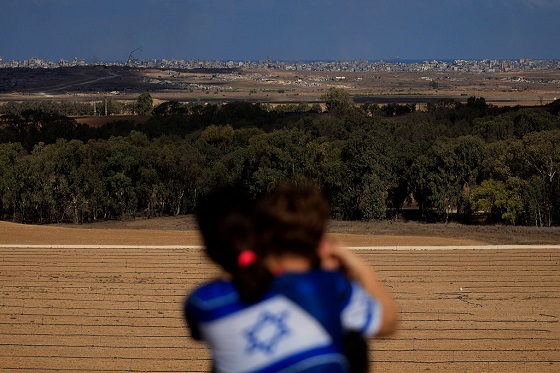
From LifeSiteNews
Despite a majority of national governments and Christian prelates demanding a two-state solution, experts warn that Israel and the US aim to crush all hope for a Palestinian state.
After killing 104 Palestinians, including 46 children and 20 women with aggressive overnight airstrikes, Israel announced Wednesday that it was resuming observation of its ceasefire deal with Hamas that was penned earlier this month.
Israeli Prime Minister Benjamin Netanyahu ordered the Israeli army on Tuesday to “immediately carry out forceful strikes in the Gaza Strip,” signaling a collapse of the October 10 agreement brokered by U.S. President Donald Trump.
Israel claimed the strikes were retaliation for its forces coming under fire from Hamas fighters in the southern city of Rafah. And though Palestinian sources reported hearing gunshots and strikes in the area, Hamas stated they had “no relation to the shooting incident” and reaffirmed their “commitment to the cease-fire agreement.”
Though the Israeli army has currently taken control of 58% of the Gaza Strip, local media reported a decision of the prime minister to expand its occupation to more land in response to the reported attack.
Following Netanyahu’s order, a series of Israeli strikes were reported in Gaza City, Rafah and later Khan Younis. These included one “massive” explosion near al-Shifa Hospital with and Al Jazeera correspondent reporting from the ground “major activity in the air over Gaza’s skies, with drones hovering above.”
Israeli bombardment targets also included a refugee camp in central Gaza, homes and tents with additional injury numbers logged at 253, including 78 children. With no medical supplies or medicines to treat the wounded, the hospital director at al-Shifa said the health situation was “catastrophic.”
Netanyahu’s strike order also followed an accusation from the Israeli government that Hamas was in violation of the ceasefire due to their delaying the return of bodies of deceased hostages. But before the agreement being signed, Israeli officials acknowledged it may take significant time to locate and return these corpses and CNN quoted Israeli officials who acknowledged some of the bodies may never be returned.
Additionally, according to Al Jazeera, while Israel maintains pressure on Hamas to return these bodies, the Palestinian militant group continues to call on Israel to allow the entry of heavy bulldozer equipment for facilitating this process since some of these bodies are believed to be buried deep under the rubble of buildings destroyed by Israeli bombardments.
Israel violates ceasefire 125 times, kills hundreds with Trump’s support
Even prior to the Israeli army reporting one reservist soldier being killed in the Rafah attack on Tuesday, from unidentified assailants, the Gaza-based Government Media Office had tallied 125 breaches of the ceasefire agreement by Israel which claimed the lives of 107 Palestinians and wounded nearly 350.
Israel has additionally violated the ceasefire agreement by allowing only a fraction of the agreed-upon number of humanitarian aid trucks to enter the enclave that had been officially declared by a UN agency in August to be suffering under a man-made famine.
A further violation of the deal includes Israel’s decision to keep the Rafah crossing with Egypt closed preventing tens of thousands of critically wounded Palestinians to seek medical treatment abroad because Israel has all but completely destroyed the health care system in Gaza. According to reports, thus far 983 patients have died while waiting for the permission from Israel to travel abroad for treatments.
Trump backed Israel’s massive strikes, which killed dozens of children, saying they had a “right to (retaliate)” due to the killing of the Israeli soldier, maintaining that these many violations would not jeopardize the ceasefire agreement.
Ceasefire deal ‘scam’ to retrieve Israeli hostages; Trump complicit with genocide
In a Wednesday interview with Judge Andrew Napolitano, former U.S. Marines Officer, author, and military commentator, Scott Ritter classified the Tuesday bombings as Israel sending “a signal that they are the permanent occupiers, that even under ceasefire conditions, Israel retains the right to strike anytime, anyplace against anyone without any fear of consequence.”
He expressed his belief that Hamas is “serious about this ceasefire agreement” while Israel is not, that the current ceasefire plan is merely a “scam to get the Israeli hostages home” before “finish(ing) the job,” of genocide in Gaza as a means of preventing any possibility of a Palestinian state.
He further assessed that since “the genocide that Netanyahu is carrying out in Gaza couldn’t have been done without the support of Donald Trump and the United States. So, Donald Trump is as guilty for the deaths of the Gazans in Palestine and Gaza as Netanyahu is.”
Solution to conflict affirmed by 96% of world’s nations: establishment of sovereign State of Palestine
In initially evaluating the current ceasefire agreement on October 9, Columbia University economist and senior UN adviser Jeffrey Sachs stated that the solution to the conflict is “very straightforward” and has been affirmed by the “the world community, overwhelmingly, for decades” and this is the call “for a State of Palestine.”
By “massive votes” in the UN General Assembly “more than 90% of the world community” has consistently demanded the establishment of the State of Palestine for many years.
With an overwhelming majority of UN member states (81.3%) formally recognizing the State of Palestine (157 of 193), Sachs has said elsewhere that nations demanding the full establishment of such a sovereign state is even much higher, including 185 of these national governments (95.8%) who have consistently voiced support for this two-state-solution.
This also means these nations demand an end to the ongoing 58-year brutal military occupation of internationally recognized Palestinian territory that was also confirmed as illegal by the International Court of Justice just last year.
Holy Land prelates: Only by ending Israel’s illegal occupation can ‘lasting peace be established’
Consistently affirming and echoing this overwhelming consensus is the Catholic Church, including the unanimous and constant voices of her bishops in the Middle East, those from around the world, and with statements from the Vatican as well. Indeed, in June, the Holy See commemorated the 10th anniversary of its formal recognition of the State of Palestine in 2015 after welcoming UN recognition of the state “with favour” in 2012.
In a formal joint statement celebrating the enactment of the ceasefire earlier this month, the Patriarchs and Heads of Churches in the Holy Land, including Cardinal Pierbattista Pizzaballa, rejoiced at the expected ceasing of hostilities, expressed hope for the future and appealed for the international community to “widen the scope of the current negotiations to include an end of the Occupation of both the West Bank and Gaza, leading to the establishment of a Palestinian state living side-by-side in peace with the present State of Israel.”
“Only in this way, we believe, will a just and lasting peace be truly established in the Holy Land and throughout the larger Middle East,” they concluded.
Crime
Canada Seizes 4,300 Litres of Chinese Drug Precursors Amid Trump’s Tariff Pressure Over Fentanyl Flows

In what appears to be the second-largest Chinese precursor-chemical seizure in British Columbia in the past decade, Canadian border and police officials announced they intercepted more than 4,300 litres of chemicals used to manufacture fentanyl and other synthetic drugs at a notoriously troubled port in Delta, B.C.
The announcement of a seizure that occurred in May 2025 comes amid President Donald Trump’s continuing pressure on Ottawa to crack down on fentanyl trafficking in the province — which U.S. officials say has become a key production and shipment point for Chinese and Mexican traffickers.
The seizure — announced jointly by the Canada Border Services Agency (CBSA) and the RCMP — underscores the scale and persistence of global trafficking networks funnelling illicit materials into Canada’s drug markets.
According to the agencies, border officers examined two marine containers that arrived from China in mid-May, both bound for Calgary, Alberta. Acting on intelligence developed by CBSA’s Pacific Region, officers discovered 3,600 litres of 1,4 Butanediol, a key ingredient for producing GHB, often known as the “date-rape drug”; 500 litres of Propionyl Chloride, a chemical precursor used to synthesize fentanyl; and 200 litres of Gamma Butyrolactone (GBL), another controlled intoxicant.
The chemicals were concealed inside 60 clear jugs and 20 blue drums within the containers. Investigators believe the shipment was intended for use in clandestine drug laboratories. The RCMP confirmed that an investigation into the importation network remains ongoing.
The seizure comes amid growing concern about Canada’s port security, particularly in Metro Vancouver, where experts and local officials say criminal networks are exploiting gaps in federal enforcement.
The Delta seizure follows a series of major CBSA operations targeting precursor chemicals at Pacific ports. In May 2022, CBSA officers in the Metro Vancouver District examined a container from China declared as “toys” and discovered 1,133 kilograms of the fentanyl-precursor chemical Propionyl Chloride, with the potential to produce more than a billion doses of fentanyl.
Public Safety Canada also reported that in the first half of 2021, CBSA seized more than 5,000 kilograms of precursor chemicals, compared with just 512 kilograms in 2020 — reflecting what officials called a “dramatic escalation” in attempts to smuggle fentanyl inputs into the country.
In 2023, the City of Delta released a report highlighting major vulnerabilities at port terminal facilities, warning that there is “literally no downside” for organized criminals to infiltrate port operations. The report noted that British Columbia’s provincial threat assessment rated ports as highly susceptible to corruption and organized-crime infiltration.
At the time, Delta Mayor George Harvie called the lack of a dedicated national port-policing force “a threat to national security.” In comments to the Canadian Press, Harvie said that while Canada’s ports fall under federal jurisdiction, the “total absence of uniformed police at the facilities makes them obvious targets for criminal elements — from Mexican drug cartels to biker gangs.”
“We’re witnessing a relentless flow of illegal drugs, weapons and contraband into Canada through our ports, and that threatens our national security,” Harvie said.
The Port of Vancouver complex, which includes major terminals in Delta, Surrey, and Vancouver, handles roughly three million containers annually, with millions more expected as port expansion plans move forward.
The Delta report reiterated how difficult it has become to police these sprawling operations since the Ports Canada Police were disbanded in 1997. More than a quarter-century later, Harvie said, the consequences of that decision are now “alarmingly clear.”
The CBSA announcement today comes as U.S. President Donald Trump has imposed tariffs on Canadian exports, accusing Ottawa of failing to interdict the flow of fentanyl and precursor chemicals trafficked through British Columbia ports. Washington has repeatedly pressed Canada to strengthen port enforcement and anti-money-laundering controls, citing the West Coast’s role in China- and Mexico-linked trafficking networks.
Simultaneously, in trade negotiations with Beijing, Mr. Trump announced a reduction in tariffs tied to the fentanyl supply chain — raising concern that Washington has eased pressure on China, the primary source of finished fentanyl now responsible for hundreds of thousands of overdose deaths across North America.
Subscribe for free to receive new posts and support my work.
For the full experience, please upgrade your subscription and support a public interest startup.
We break international stories and this requires elite expertise, time and legal costs.
-

 International15 hours ago
International15 hours agoPrince Andrew banished from the British monarchy
-

 Business1 day ago
Business1 day agoCanada’s attack on religious charities makes no fiscal sense
-

 Banks2 days ago
Banks2 days agoBank of Canada Cuts Rates to 2.25%, Warns of Structural Economic Damage
-
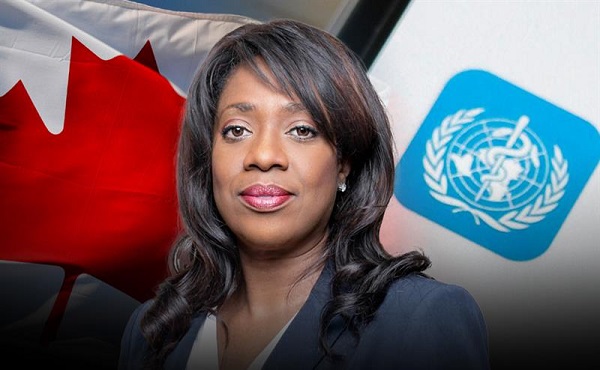
 Health2 days ago
Health2 days agoLeslyn Lewis urges Canadians to fight WHO pandemic treaty before it’s legally binding
-

 Alberta2 days ago
Alberta2 days agoNobel Prize nods to Alberta innovation in carbon capture
-

 Business2 days ago
Business2 days agoFord’s Liquor War Trades Economic Freedom For Political Theatre
-

 Business15 hours ago
Business15 hours ago“We have a deal”: Trump, Xi strike breakthrough on trade and fentanyl
-
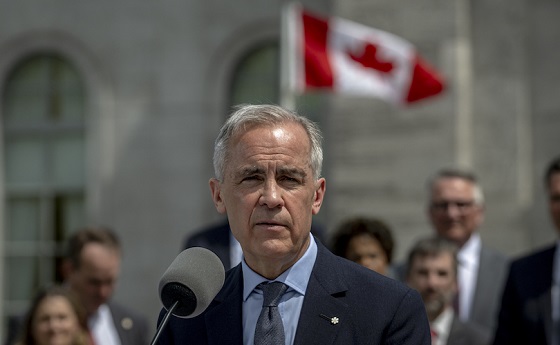
 National2 days ago
National2 days agoCanadian MPs order ethics investigation into Mark Carney’s corporate interests











